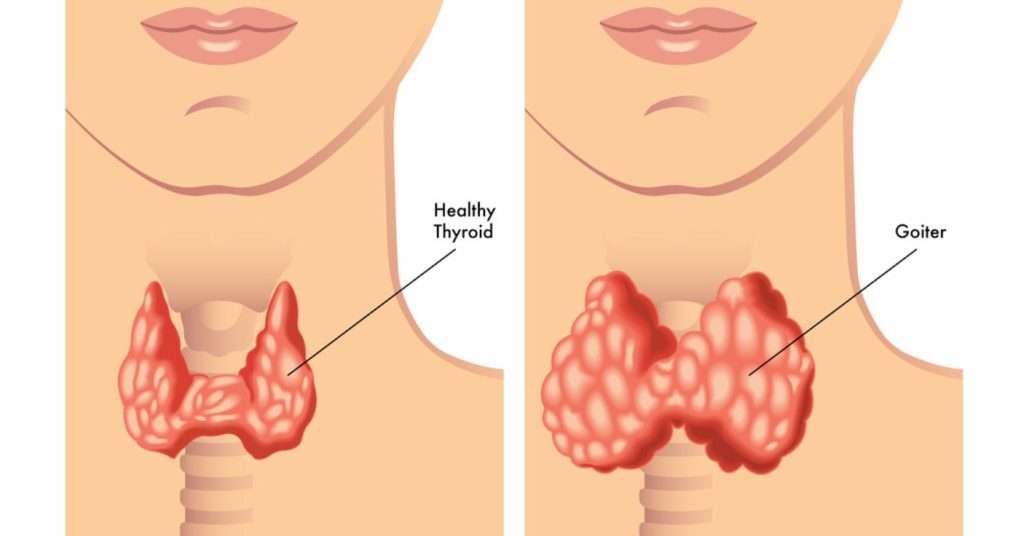If you want to cure hypothyroidism, then homeopathic medicines can offer you a permanent cure.
Homeopathy Treatment For Hypothyroid at Welling Homeopathy can help you get cured of thyroid gland abnormalities. Our specially formulated Homeopathy treatment protocol can get your thyroid hormones in a normal range and we can gradually stop your thyroid medications.
1000’s of women have stopped their thyroid hormone medicines and reversed their symptoms of hypothyroid within 12–18 months of our HeyPills Homeopathy treatment under the supervision of our specialist. Meet our specialists or order online today.
Benefits of Homeopathy In Hypothyroidism
Our tailored Homeopathy medicines can help you get cured, stop your hormonal medicines and reverse all the symptoms due to thyroid abnormality. All within 2 to 3 years of our Homeopathy treatment.
- Our specially formulated Homeopathy medicines for hypothyroid is proven to cure under-active thyroid,
- The treatment can help you recover from symptoms of hypothyroid like being over-weight, mood-swings, hair-loss, infertility and more,
- 81 Year Old Legacy of Welling family in practising Homeopathy,
- Once the treatment of the thyroid is complete, the symptoms are cured completely, and no need for lifelong medications
- You get faster relief due to our newly custom-made homeopathy medicines at Welling Research Labs.
- The treatment has already helped over 20,000 patients from 108 countries,
Call +91 9999064336 to book an appointment or to consult and order online. Meet our specialists today for our homeopathy treatment for thyroid.

What is Hypothyroid?
It is an illness characterized by abnormally low thyroid hormone production.
This can be due to the problem with the thyroid gland itself wherein it cannot produce sufficient hormones due to certain reasons or due to a problem with the pituitary gland wherein the basic stimulus for the hormone secretion is lacking. The incidence is much higher in women.
If not treated in time, it can affect:
- Brain development
- Breathing
- Heart and nervous system functions
- Body temperature
- Muscle strength
- Skin dryness
- Menstrual cycles
- Weight
- Cholesterol levels.
Causes of Hypothyroid
1.Hashimoto’s thyroiditis-In this thyroid gland is usually enlarged and has a decreased ability to make thyroid hormones. It is an autoimmune disease in which the body’s immune system inappropriately attacks the thyroid tissue.
2.Lymphocytic thyroiditis-In this inflammation is caused by a particular type of white blood cells.
This condition is common after pregnancy.in these cases there is usually a hyperthyroid phase followed by a hypothyroid phase.
3.Thyroid destruction secondary to radioactive iodine or surgery-
Patients who have been treated for a hyperthyroid condition and received radioactive iodine may be left with little or no functioning thyroid issue after treatment.
Removal of the thyroid gland during surgery will be followed by hypothyroidism.
4.Pituitary or hypothalamic disease-If for some reason the pituitary gland or hypothalamus are unable to signal the thyroid and instruct it to produce thyroid hormones, a decreased level of circulating T4 and T3 may result, even if the thyroid gland itself is normal. This is called “secondary hypothyroidism”.If the disease is due to hypothalamic disease, it is called “tertiary hypothyroidism”.
5.Pituitary injury-It may result after brain surgery or if there has been a decrease of blood supply to the area. In these cases, TSH hormone has become low, and hypothyroidism results because the thyroid gland is no longer stimulated by pituitary TSH.
6.Medications– Medicines that are used to an overactive thyroid may cause hypothyroidism. These include Methimazole, Propylthiouracil etc.
7.Severe iodine deficiency-In areas of world where there is an iodine deficiency in the diet severe hypothyroidism can be seen.
What Are Early Warning Signs of Thyroid Problems?
- Easily getting tired
- Increased sensitivity to cold
- Constipation
- Dry skin
- Unexplained weight gain
Thyroid Symptoms in Female
- Puffy face
- Hoarseness
- Muscle weakness
- Elevated blood cholesterol level
- Muscle aches ,tenderness and stiffness
- Pain,stiffness and swelling in joints
- Heavier than normal or irregular menstrual periods
- Thinning hair
- Slowed heart rate
- Depression
- Impaired memory
Complications of Hypothyroid
If left untreated, the following symptoms can manifest:
- Decreased taste and smell
- Hoarseness
- Slow speech
- Thickening of skin
- Peripheral neuropathy
- Mental health issues: including depression and memory impairment
- Infertility
- Birth defects
- Myxedema: a rare, life-threatening condition characterised by intense cold intolerance and profound lethargy.
Hypothyroidism is a condition that develops slowly and so the appearance of these symptoms may not be obvious and difficult to spot at first.
Diagnosis of Hypothyroid
Your consultant usually will diagnose hypothyroidism by a thorough physical examination followed by a blood test. A medical history will probably be taken as well.
The most common blood test used is the TSH test. If the TSH report is above normal then you may be diagnosed as having hypothyroidism.
Additional blood tests used to confirm the diagnosis or determine the cause of hypothyroidism are the free T3 & free T4 test and the thyroid auto-antibody test.
For all of the aforementioned tests a 12 hours fasting blood sample is required.
As many of the symptoms of hypothyroidism are the same as other conditions, the doctor will not be able to make a diagnosis based solely on symptoms.
The health care provider may also perform tests to check cholesterol levels, liver enzymes, prolactin, sodium or perform a full blood count. The severity of symptoms and blood tests reports may not always match due to various reason and hence before doing any tests, its better to talk to your specialist at Welling Clinic.
Treatment For Hypothyroid
For long, the conventional treatment involves synthetic hormones to replace your body hormones.
Courses of treatment for hypothyroidism aim to give the body the amount of thyroid hormone that it is lacking. This is achieved through synthetic thyroxine, a medication that is identical to the T4 hormone.
Dosage is determined by the patient’s history, symptoms and current TSH level. Health care providers will regularly monitor the patient’s blood to ensure that their dosage does not need to be adjusted. Monitoring will remain regular but gradually become less frequent over time.








